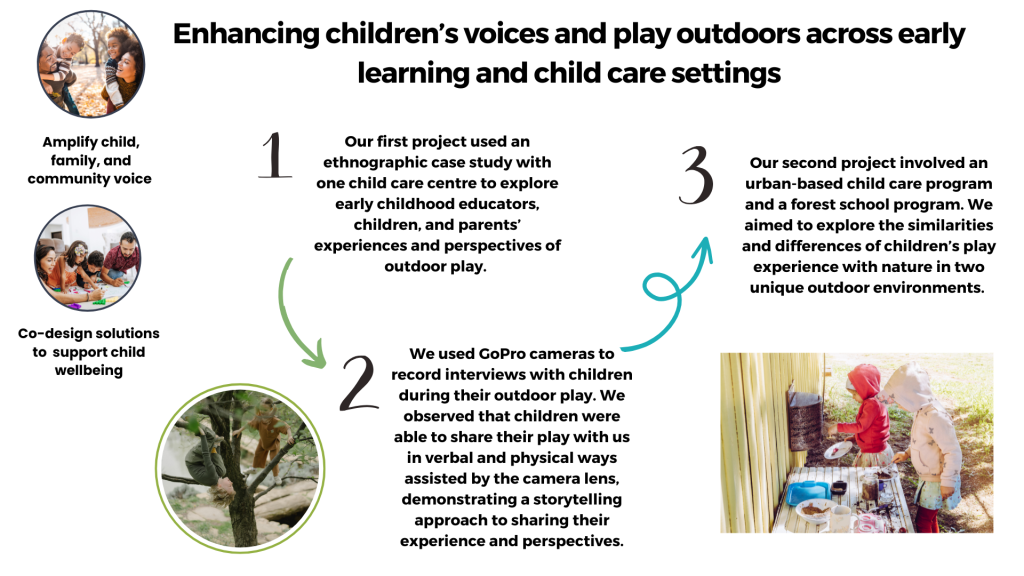
In 2022, we partnered with a child care centre to explore experiences and perspectives of outdoor play. The project aimed to understand how perspectives may shift with increased access to quality outdoor gear to lessen barriers to getting outside across different seasons. We interview children during their typical outdoor play time using GoPro cameras worn on children’s chest mounts to record. This approach was successful in capturing unique perspectives from children, so we used this method again in our second study in 2023. The same child care centre participated, along with a forest school program. We explored children’s experiences of outdoor play in their unique outdoor play environments (i.e., a playground with natural and manufactured features and the woods).
Mobilizing outdoor play through participatory action research (2022-2023)
Our Mobilizing Outdoor Play project (2022-23) used an ethnographic case study with one child care centre to explore early childhood educators, children, and parents’ experiences and perspectives of outdoor play. The project aimed to understand how perspectives may shift with increased access to quality outdoor gear to lessen barriers to getting outside across different seasons. This project supports decisions related to purchasing physical resources and other initiatives that are needed to build comfort and support for outdoor play for the early childhood community in Nova Scotia.
Enhancing children’s voices and play outdoors across early learning and child care care settings (2023-2024)
This project aimed to extend the previous study to enhance children’s perspectives related to outdoor play. Two child care programs, an urban-based child care centre and a forest school program, participated in this study. We aimed to explore the similarities and differences of children’s experience in outdoor play and how the outdoor is environment involved in children’s play across the two settings. Children participated through go-along interviews that were recorded using chest-mounted video cameras to capture their visual perspectives of their respective outdoor play spaces (i.e., the playground or the forest). Findings from this study are intended to support child care programs in reflecting on their pedagogical practice and planning of their outdoor environments, and inform the broader early learning and child care community in Nova Scotia.